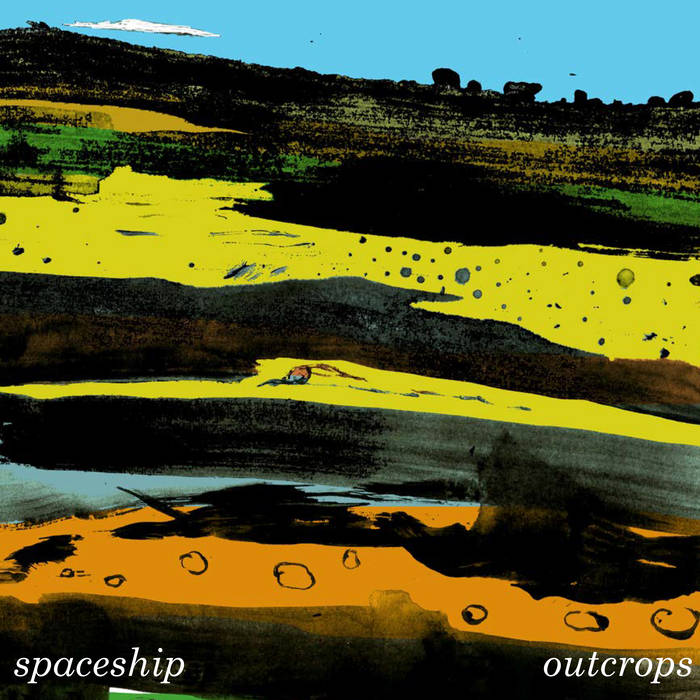By Paul Scraton:
The final track reaches an end and the record stops. I pick it up and turn it over. Start again from the beginning. The music comes in waves, a fragmented, crackling, sweeping electronica that brings first to mind a desire path close to my mum’s in Yorkshire, where it passes beneath a huge, humming electricity pylon in the grounds of an old asylum transformed into a whole new village on the edge of the moors. But then I am taken, via a gentle voice, to the chalk landscapes of the south, and the stories to be found if we only “look beyond the intensive agriculture, the lookalike market towns, the wealth, the gold course and the four-wheel drive cars…”
Chalk Hill Blue is the name of a butterfly that can be found in those chalk landscapes around Wendover in Buckinghamshire, where the poet Will Burns lives and writes. It is also the name of the album Burns has created with the artist, producer and composer Hannah Peel, with his words and her music coming together to create a haunting, unsettling and strangely beautiful portrait of a place and its stories. Burns and Peel met in 2016 and two years later began working on the album. Sometimes the music came first, with Burns then selecting the poem that fit best with the sounds Peel was composing. Sometimes it was the poem that inspired the composition. The result was this album, released by Rivertones label of Caught by the River.
In a way this album is specific, telling as it does the stories of a particular place and of particular moments in time. The track titles themselves are rooted in location (Ridgeway), season (Spring Dawn On Mad Mile, Summer Blues), date (May 9th, February) and, of course, the local wildlife (Chalk Hill Blue). It is an attempt, as has already been mentioned, to look beyond the identikit everywhere of the 21st century world and find the real place that lies within or beneath. And it is a recognition that there are elements that have been lost. This might be true of the stories, which are now half-remembered, or the routines, work lives and traditions of the people. This loss it is most definitely felt when the album considers those other lives, the non-human lives, with which a place is shared. There is, Burns writes in the sleeve notes, “not as much as there should be, no, we must admit that.”
If stories, of people and other living things, of places and what they contain, exist only in memory then they become by nature fragmented and infused with loss. This atmosphere of change, melancholy and absence permeates Chalk Hill Blue and is perhaps why, on the second and third listen, I am taken away from Wendover once more and back to my mum’s Yorkshire village and then on, to the flat landscapes around Berlin or an empty square in a crumbling French market town. For while the album tells the fragmented stories of a particular place, it resonates because of the questions it poses for places far beyond:
What role does place play in our identity?
What does belonging mean?
How do we find our feet in an ever-shifting world?
How do we make sense of what has been lost?
There is a danger in these questions, but it doesn’t mean they shouldn’t be asked. Questions of home and belonging, of the lost stories of place and an impending environmental catastrophe are key questions of our time. It is not possible to observe the movements that gave us Brexit, the rise of the AfD in Germany or the Gilets Jaunes of the French periphery without understanding how these questions link in. As we mop out our flooded towns and we try to protect our villages from raging forest fires, as we wonder where the bees have gone or why the cranes are staying through the winter, these questions return to us time and again.
These are uncomfortable questions, and it is to Will Burns’ and Hannah Peel’s credit that Chalk Hill Blue provokes us to ask them. We cannot ignore them. We have to find the answers to these questions and find the answers that are not rooted in nostalgia or the exclusion of others. There is no going back. However we find a answer, and one which rejects the dead ends of nationalism and nativism, the first step is to tell the stories. The first step is to know what is happening. How did we get here? It can be the role of music, of poetry and of art, to bring those stories to light. Through its thoughtful, thought-provoking poetry and beautiful, atmospheric music, Chalk Hill Blue does just that.
***




